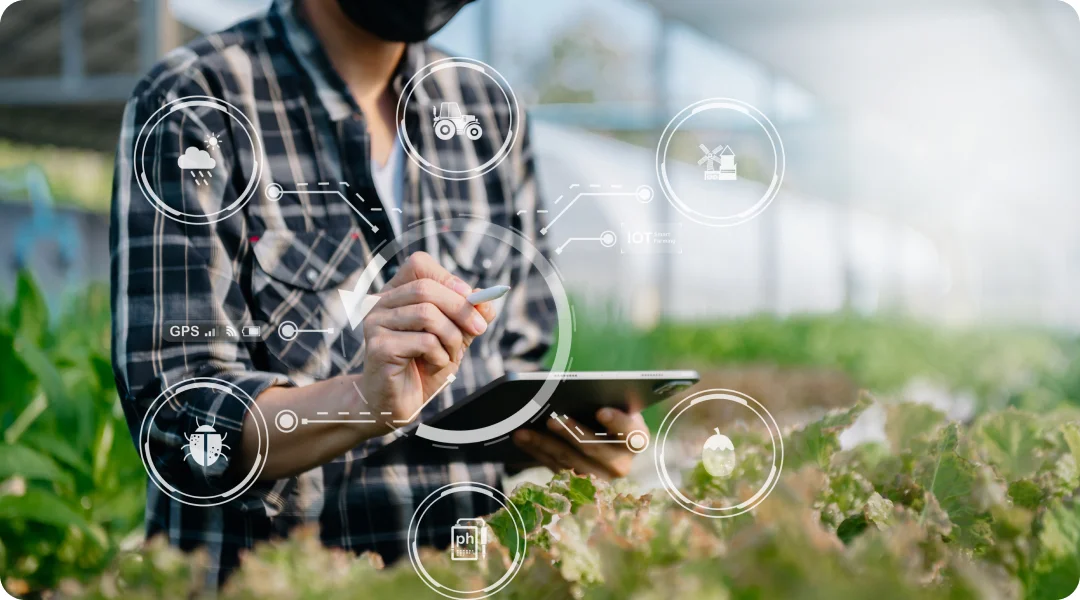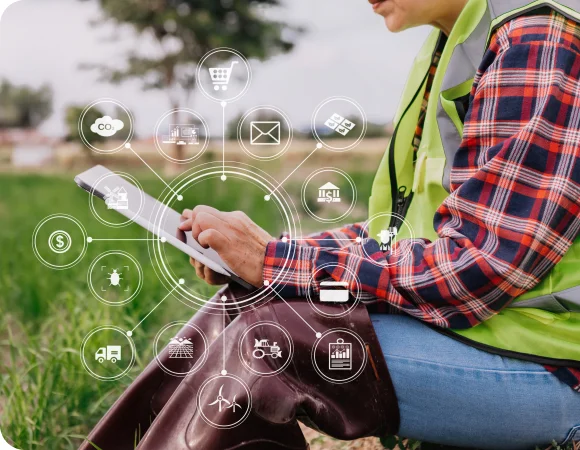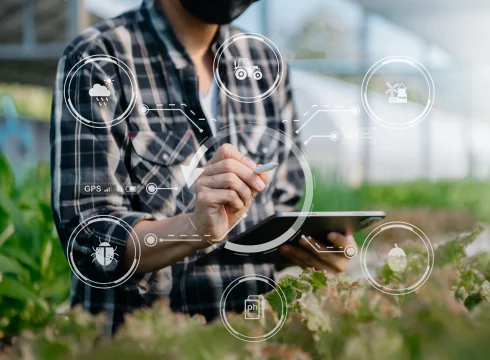- Case Studies
- Case Study Details
Smart Farming with Deep Learning Technology

-
 IndustryAgriculture
IndustryAgriculture -
 DomainAI, IoT, Analytics
DomainAI, IoT, Analytics -
 LocationSouth Africa
LocationSouth Africa -
 Date25 Jan, 2021
Date25 Jan, 2021
Client Background
In the realm of agriculture, where efficiency and sustainability are crucial, the integration of artificial intelligence and deep learning has opened up new possibilities for optimizing farming practices.
This case study showcases how we helped a leading agriculture company by digitally transforming key areas, including:
- Plant monitoring.
- Early detection of plant infections.
- Smart irrigation.
- Targeted / precise chemical application.
Through automation and intelligent decision-making, our innovative solution aims to save costs, reduce resource consumption, and improve overall productivity. Let’s quickly understand how?
Problem Statement
Traditional farming practices often rely on manual labor and intuition-based decision-making, resulting in suboptimal resource utilization and increased costs. Additionally, timely detection of plant infections and efficient irrigation management remain significant challenges.
The need of the hour is a technology-driven solution that can revolutionize farming by automating crucial processes, enabling accurate identification of plant and plant diseases, and optimizing resource usage.
The Solutions
The solution comprises two stages:
Plant Identification
Stage - 1
Using state-of-the-art deep convolutional neural networks, we trained an AI model to accurately identify various plant species.
Leveraging transfer learning techniques on the “Mobilenetv2” architecture, the model achieves impressive results.
Pre-processing techniques such as color scale normalization, image size normalization, and data augmentation further enhance the model’s accuracy and robustness.
Infection Detection
Stage - 2
Once the plant is identified, our solution employs the same deep learning approach to detect infections, if any. By analyzing leaf images, the model can identify signs of diseases or infestations accurately. With the help of hyperparameter tuning, we mitigate overfitting and ensure optimal performance.
Outcome and Benefits
Implementing our AI powered deep learning technology in the agriculture industry can yield significant advantages:
Cost and Resource Savings
By automating plant monitoring, infection detection, and irrigation management, human hours and resources can be saved. The company optimized water usage, reduced chemical application to infected areas only, and avoided unnecessary labor costs.
Improved Productivity and Efficiency
The integration of AI technologies streamlined the farming processes, ensuring that each plant receives the necessary care and resources. By focusing efforts on infected plants, through this the company earned higher productivity and efficiency in their operations.
Early Disease Detection
Our solution allowed the company to early detect plant infections, allowing them to take prompt action and prevent the spread of diseases. This helps minimize crop losses and enhances overall yield.
Scalability and Adaptability
While the current model is based on leaf images, future enhancements can incorporate whole-plant detection to provide a comprehensive analysis of plant health.
Scope of further improvemen
With additional labeled data and continuous model training, accuracy and applicability can be improved.
Whom this can be helpful

- Farmers who are looking to improve their yields and reduce costs.
- Agriculture business who are looking forward to adapt new technologies.
- Government agencies that are responsible for agriculture.
- Investors who are interested in agriculture industries.
- Researchers who are looking to develop new agriculture technologies.
Technology Stack & Softwares




The Ultimate Outcome
- Monitor crops and livestock for signs of disease or pests.
- Optimize irrigation and fertilization schedules.
- Optimize the use of resources such as water and fertilizer.
- Predict crop yields.
- Automate tasks such as harvesting and planting.
- Develop predictive models for crop yields and pest infestations.
The use of our innovations in Deep Learning for agriculture has the potential to improve productivity, reduce costs, and protect the environment. However, there are also some challenges that need to be addressed, such as the ethical implications of using AI and the need for farmers to have the skills and knowledge to use these technologies effectively.
Overall, the digital transformation of agriculture through AI and Deep Learning is a promising development that has the potential to revolutionize the industry.













